- Home
- J. R. Ward
The Black Dagger Brotherhood_An Insider's Guide Page 25
The Black Dagger Brotherhood_An Insider's Guide Read online
Page 25
3. Don’t write to the market, but be strategic. In terms of subgenres (like paranormals or romantic suspense or historicals), if there’s something that’s hot that publishers are buying, it never hurts to put your hat in the ring if what’s being bought is something you’ve legitimately got in you to write. The Brothers and I are an example of this. By the same token, if there’s something that you want to write but isn’t selling very well, if your goal is to get picked up by a publisher, you might consider exploring some of your other ideas and seeing if they’re in a subgenre that’s moving a little bit more. HOWEVER, that all being said, if you write what you’re passionate about, your enthusiasm is going to come through on the page and make for a better reading experience—and things change. What’s hot now may be replaced with something else in another year. Hold on to your rejected manuscripts—you never know when you might resubmit to someone else or in another form in the future.
4. Write your book for you, then see who it fits with. It’s a good idea to know what individual publishers/editors are buying, and it does make sense, once you’re finished with a project, to send it to the right place: For example, you wouldn’t want to get a medieval romance to an editor who’s looking for paranormals (more on how to find out who’s buying what in a little bit). The great thing about having a good agent is that they’ll know on whose desk to place your work. Some editors like to work with dark stuff, others like comedy, and personality matches are always a plus in the editor/author relationship. If you haven’t found an agent yet and are submitting without one, ask other authors whose material is similar to yours who they’re working with (but, again, more on agent/editor searches in a little bit).
5. Category or single title is a personal choice. There are a couple of different avenues to explore when it comes to getting published in romance, and I’m not talking in terms of subgenre. The two big ones for print books are categories versus single titles. Categories, such as Silhouette Special Editions or Harlequin Intrigues, are shorter stories that fit into clear guidelines laid out by the publisher in terms of content and page count. Single titles are the longer, stand-alone books. There are pluses and minuses to doing both: You don’t need an agent to approach category editors, whereas for the most part, if you want to sell a single title, you’re going to need representation. Categories, therefore, can be a really good place to break into (and a TON of supersuccessful authors like Elizabeth Lowell, Suzanne Brockmann, Lisa Gardner, and Jayne Ann Krentz got their start with them). Also, categories can help you find your niche in the marketplace a little quicker, because the guidelines for submission are so clear—there are lines that feature suspense, paranormal, humor, you name it. I tell folks to check out www.eharlequin. com for the list of category lines and their submission guidelines. EHarl, as we call it, also has terrific resources on craft.
In my career, I kind of started out bass-ackwards, doing single titles first, then going to category when I wanted to keep doing contemporary romances while the Brothers were getting started. I love writing my categories (Silhouette Special Editions under the Jessica Bird name), and they’re a great break from the Brotherhood books—lighter and quicker, they clean my palate. I will say, though, that I do not find them appreciably easier to write just because they’re shorter—good work is hard no matter what the page count is.
As for the single-title market, compared to getting picked up in category, it can be more competitive, and as I said, there is most often the rate-limiting step of needing an agent. However, you do have more freedom in single title in terms of page length, content, and subplots, as well as the potential for earning more money—although there is more risk, too. If you don’t sell, there is a perception out there that you will get dropped more quickly than in category.
The choice depends on where you are in your writing and the kind of stories you want to write. And it’s not a one-or-the-other kind of thing. You can try a single title or start out in category, it’s really just what appeals and what you think your material is best suited for.
6. A note on e-pubs. I don’t have a ton of knowledge on e-pubs, so I usually refer folks to friends of mine who have been brought out by them and have firsthand knowledge of which ones are the best in terms of author support and business ethics. I think e-pubs can provide a really good opportunity for professional editing and are a great avenue to bringing your name forward to the market much more quickly than would otherwise be possible. I also think they can be groundbreaking in terms of what kind of content they’ll publish and can be an outstanding place to see through a project that might otherwise be deemed too racy or too controversial. I do think authors should be careful—going with those companies that are more established and getting an independent read on contracts before you sign is only smart (as well as apropos in ANY business endeavor).
7. Agents are desirable. From what I understand from the editors whom I know, their slush piles have grown geometrically over the past few years. I’m not exactly sure why—maybe it’s the advent of computers, who knows. But this phenomenon, in addition to the squeeze publishing is currently under, means that editors are understandably even more overloaded and cautious than ever before.
This is where agents come in. The editors I know use agents as a kind of gateway for screening projects, and they rely on recommendations from them when it comes to choosing which material to review and perhaps bid on. A good agent has relationships with editors in every house at every level and knows where to place proposals. In addition, they can vouch for your project with their reputation, giving you even more credibility.
A good agent doesn’t have to be your friend and they shouldn’t be. They should tell you the things you don’t want to hear and be honest about where you are in your career and where you’re going. Each one is different, just like each author is different. Some want to have a say in content, others stress promotion; some are hand-holders, others are bulldogs. The key thing is to find a connection that works for you. And remember it’s a relationship like any other. Be professional and honest and expect the same, and never, ever shoot the messenger. If your agent is doing their job right, you’re going to hear things you don’t like or wish were different. The key thing is working together to solve problems and getting your work out to as many people as possible.
8. How do I find an agent or a publisher? The best advice I can offer here is go out and get the most recent version of Writer’s Market. This yearly reference volume is a great guide to what agents and publishers are looking to buy. The listings are grouped by agent (or agency) and by publisher as well, and give names, addresses, and statements as to who is looking to represent or acquire what. RWA also does a yearly report on agents and publishers that is specifically geared toward romance (another great boon that comes with membership). Further, if you know published authors, it also helps to ask around and find out who they are represented and published by, how they like their agent and editor(s), and what kind of experiences they’ve had. Sometimes you can even get someone to pass your work on to their representative, which can be very helpful—although this is something you should wait to have offered to you, not something you should pressure another author for.
It may take several tries to get represented or picked up by a publisher, but it’s a case of persist and reinvent until it works. And when it comes to agents, if you can’t find one to take you on, that doesn’t necessarily mean you are out of luck, because again, some publishers don’t require them.
9. Multiple submissions require full disclosure. Certainly sending out the same project to a couple of different agents (or publishers, if you are unrepresented) at a time can potentially reduce the duration of the process, but it can also land you in hot water if more than one of the folks wants to represent or publish you. If you do choose to multiple-submit, disclose the fact right up front—and be sure you do not send it to agents or editors who refuse multiple submissions.
10. Be professional. And this is about everything.
Make sure your submissions are spell-checked and properly paginated with appropriate type-face and margins (Times New Roman 12 or Courier 10, double-spaced, one-inch margins all around)—as well as bound with a rubber band. When talking to folks, be polite and concise. If you’re going to an editor or agent appointment at a conference, dress appropriately. Be on time—if you tell someone you’ll get something to them by a certain date, leave yourself wiggle room for emergencies and have the material drop on the day you committed to. Write thank-you notes. Speak well of others or shut your piehole. Sure, a lot of this is no-shit-Sherlock, but it matters. God willing you’re going to have a career in this business, so you might as well start building your reputation and good name from day one.
11. Do not submit too early. This one was HUGE for me. What I’m talking about is your material. There is a tremendous temptation to finish whatever you’re working on and get it out to an agent/editor as quickly as possible—or at least there was for me. The thing is, though, you can make a first impression only once, and you’d be surprised at the kind of faults you can find in your work if you go back one more time with fresh eyes. My rule of thumb was (and is) to FORCE myself to sit on whatever project I was working on until I could give it one final read-through. It was brutal, because of course I was curious about what the editor or agent was going to say and whether I would get bought. But the thing was, I was never sorry I waited.
Here’s a perfect example. My first published book, Leaping Hearts, was not the one I got my first agent with. I wrote it during the process of trying to find representation. By the time I was picked up, I knew LH was much stronger than what I’d sent out, so I told my agent at the time to wait until I could get the new material to her. I actually delayed what went to market by a couple months in order to get LH right. But it was the correct thing to do, and my agent agreed with me. Leaping Hearts was a much stronger book and it was sold quickly.
The thing is, it’s in my nature to want to beat deadlines, but rushing compromises the work. I’m not saying that you should get caught up in analysis paralysis, where you go over the material so many times you crush it by overediting. But there is a ripening period for the writing that has to occur, and over time you’ll figure out what that is for you and how many revisions you need.
12. Promotion. Once you’re sold to a publishing house and have gone through all of the editorial and production steps that culminate in your book being bound within a cover, you’re going to want to consider the various options for promotion.
I’ve talked to a ton of authors and agents and editors about promotion because, like everyone else, I’m still trying to figure out what works and what doesn’t. And you know what the consensus appears to be? (And this is after convos with hugely successful authors and very powerful publishing houses, mind you.)
No. One. Has. A. Clue.
There seems to be no quantifiable link between any one author-driven promotional activity and book sales. That being said, however, there are things that authors can do to help support what their publisher does for them.a. Brand yourself, and build your promotions around that brand. Ask yourself what kind of books you write and create a definition. For example, dark erotic paranormals are J. R. Ward, and everything I’ve done for promo has the dark erotic paranormal vibe.
b. Definitely establish a Web presence. Get a Web site that reflects your brand, and get an e-mail address where readers can reach you and you can respond to them.
c. Consider an interactive forum. Whether it’s a message board for your readers or a Yahoo! Group or a blog (either by yourself or with others), be active and engaging and enthusiastic about your work on the Net.
d. Offer a newsletter. I’m a little behind the boat on this, only just now having developed one, but at least I had my message boards and Yahoo! Group to get word out about my releases and appearances beforehand. For better or worse, the initial two weeks of a single-title release are a make-it-or-break-it time, and the more folks who know you have something new on the shelves, the more likely they are to buy during those critical first fourteen days.
e. Do guest days at other blogs/message boards/Yahoo! Groups. Network with your friends and see who will host you for a day around your release time. Conduct a contest to generate traffic, or talk about an interesting subject concerning either your books or yourself.
f. Signings and conferences. Attend them and be outgoing.
g. Merchandising and promo items. Bookmarks and pens and other give-aways can help keep you in readers’ or booksellers’ minds.
All of the above can certainly help—but all of it is also a time suck. For me, the writing must come first, and I’ve had to take the guilt out of all the other things I could be doing on the promotion front. The bottom line is, you need to write the best book you can . . . then worry about how to promote it. There are a lot of times when I’ve had to make choices about what not to do because I’ve needed to write. It’s hard, though, and I know a lot of authors who struggle with this issue. You have to do well in the marketplace if you’re going to stay published—but there’s a lot that we as authors don’t have control over, and promo sometimes feels as if it is the only thing we can do to increase sales.
And now . . . for the single most important piece of advice I’ve ever been given.
The Golden Rule: Do the best you can for where you are. This deceptively simple concept transformed me, and it was a gift that came at just the right time: If you check out the acknowledgments in my books, you’ll see that I always thank “the incomparable Suzanne Brockmann.” There’s a good goddamn reason for it.
Let me paint a picture. Way back in July of 2006, I went to the RWA National Convention in Atlanta, Georgia. At that point, Dark Lover had come out in September of 2005 and, against all odds and expectations, had hit the New York Times extended list three weeks after its release. Which made NO sense on a lot of levels. Then Lover Eternal was released in March 2006 and it did even better, staying on the extended list even longer and selling spectacularly well. Readers were starting to get a head of steam up about the Brothers, and my publisher was really excited and my agent was totally thrilled and Dark Lover was up for the RITA for best paranormal. . . .
And I was . . . about to have a nervous breakdown.
See, one year prior to all this, I’d assumed I was never going to be published again.
When I went to Atlanta, I was losing it. I had no clue why the Brothers appeared to be working in the marketplace, I had no control over whether they would continue to do well, and it was incredibly difficult to go from being myself (grotty little writer in her boxers and her slippers) to being J. R. Ward (this, like, wunderkind thing).
Now, I’d had the good fortune of meeting Suz Brockmann through the New England chapter of RWA a couple of years before, and was, like most people I knew, in awe of her and her success. I was also a total fangirl over her work, having read it for years.
Plus, she was (and is), as they say, wicked nice.
By some stroke of luck, Suz agreed to see me for a quick one-on-one at that RWA in Atlanta, and my mom and I met her in a quiet hidey-hole in the hotel’s massive lobby. As we all sat down, I wanted to make a good impression and try to not show how clueless and terrified I was. And I was terrified. Good news is in some ways harder for me to deal with than bad news because I trust it less . . . and at the moment I truly was at the end of my rope from self-doubt and fear and disorientation.
So Suz and I are talking and she’s giving me all this great business advice and everything . . . and in the back of my mind I’m thinking, Don’t lose it, don’t embarrass yourself. . . .
I almost made it. Until she sniped me with kindness.
Toward the end of the meeting, Suz puts her hand in this little cloth bag she’d brought with her and takes out this book. Leaning forward, she says, all casual no-big-dealy, “Hey, I brought you an ARC of my new book.”
I looked down at what she was holding out to me. To this day, I remember
precisely what the cover of it looked like: shiny white with a little red pattern, the title in bold with her name underneath.
I reached forward and carefully took the book.
The thing is, I’ve read Suz for years. She’s like Elizabeth Lowell to me. She’s the author I curled up with at night and read until my eyes went double from exhaustion . . . and I still kept going. She’s the one who I can remember seeing at a conference with a hundred people standing in line just to meet her—for two hours straight. She’s the gold standard for being kind and nice to readers. And she’s the one who wrote the book that I read and then walked around my condo for hours in tears over because I was convinced I would never be as good as her on her worst day.
I fucking lost it. Took that damn ARC to my chest, curled around it, and cried all over myself.

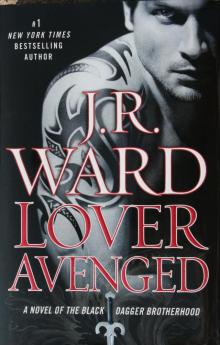 Lover Avenged
Lover Avenged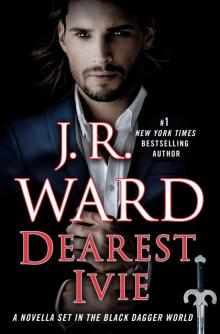 Dearest Ivie
Dearest Ivie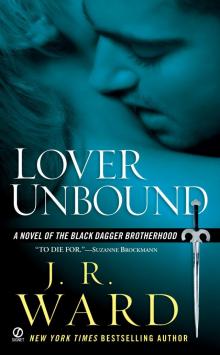 Lover Unbound
Lover Unbound Blood Fury
Blood Fury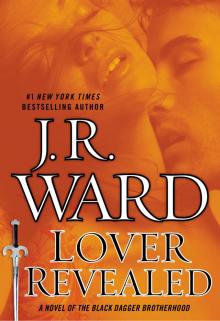 Lover Revealed
Lover Revealed The Thief
The Thief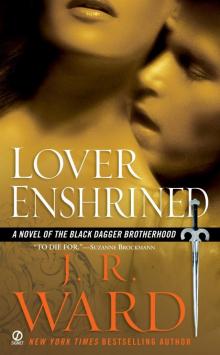 Lover Enshrined
Lover Enshrined Blood Kiss
Blood Kiss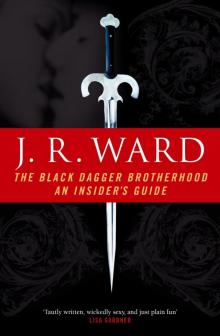 An Insiders Guide
An Insiders Guide Envy
Envy Crave
Crave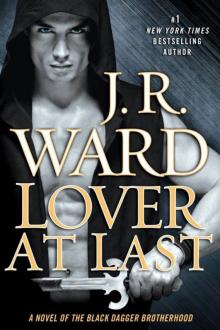 Lover At Last
Lover At Last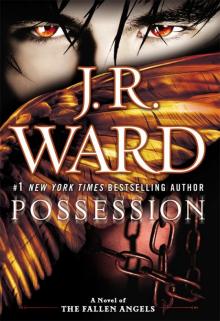 Possession
Possession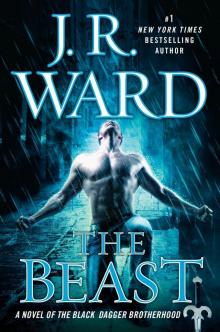 The Beast
The Beast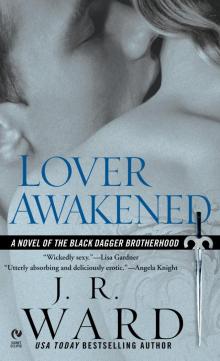 Lover Awakened
Lover Awakened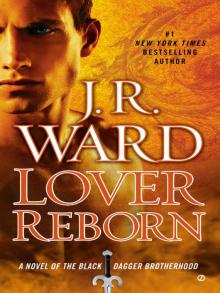 Lover Reborn
Lover Reborn The King
The King Father Mine
Father Mine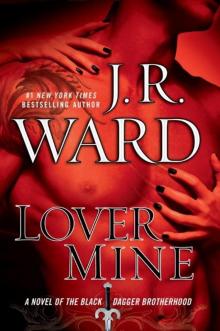 Lover Mine
Lover Mine Lover Eternal
Lover Eternal The Chosen
The Chosen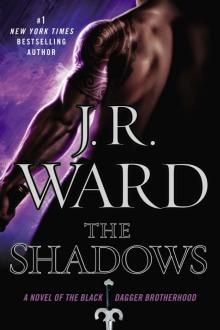 The Shadows
The Shadows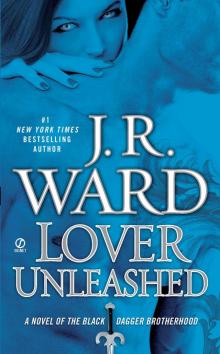 Lover Unleashed
Lover Unleashed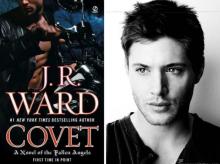 Covet
Covet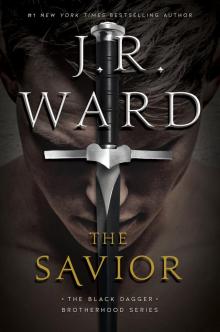 The Savior
The Savior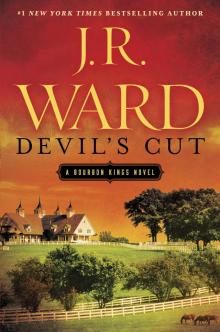 Devil's Cut
Devil's Cut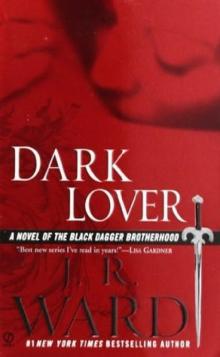 Dark Lover
Dark Lover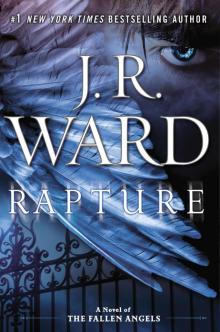 Rapture
Rapture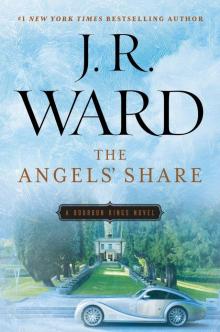 The Angels' Share
The Angels' Share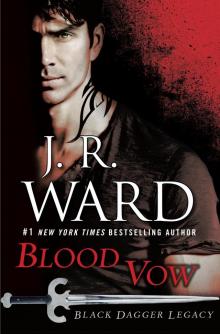 Blood Vow
Blood Vow The Bourbon Kings
The Bourbon Kings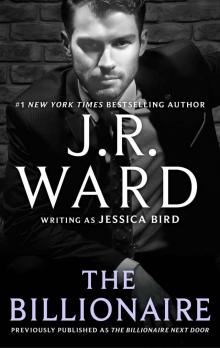 The Billionaire
The Billionaire The Jackal
The Jackal Revealed
Revealed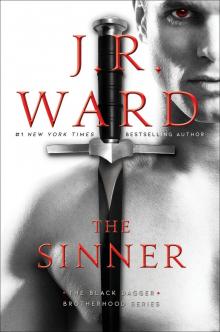 The Sinner
The Sinner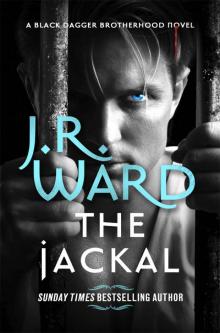 The Jackal (Black Dagger Brotherhood: Prison Camp)
The Jackal (Black Dagger Brotherhood: Prison Camp)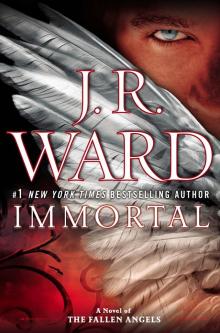 Immortal
Immortal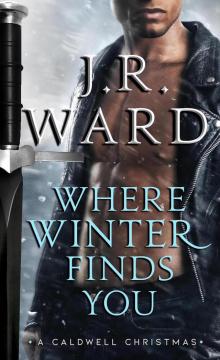 Where Winter Finds You
Where Winter Finds You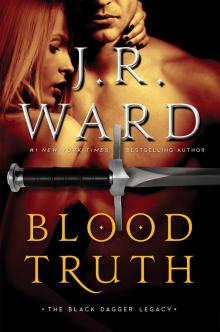 Blood Truth
Blood Truth A Warm Heart in Winter
A Warm Heart in Winter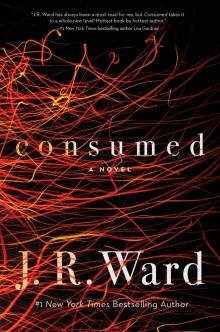 Consumed
Consumed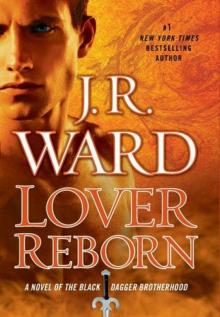 Lover Reborn tbdb-10
Lover Reborn tbdb-10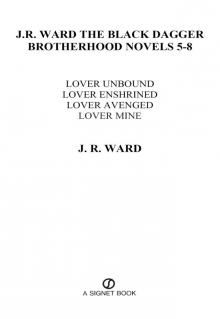 The Black Dagger Brotherhood Novels 5-8
The Black Dagger Brotherhood Novels 5-8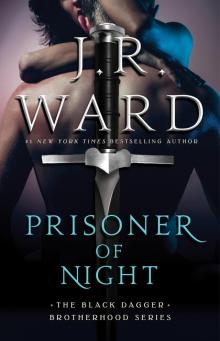 Prisoner of Night
Prisoner of Night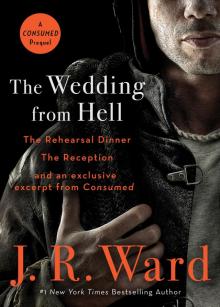 The Wedding from Hell Bind-Up
The Wedding from Hell Bind-Up Envy fa-3
Envy fa-3![Covet - A Novel of Fallen Angels [01] Read online](http://i1.bookreadfree.com/i/03/24/covet_-_a_novel_of_fallen_angels_01_preview.jpg) Covet - A Novel of Fallen Angels [01]
Covet - A Novel of Fallen Angels [01] The Rebel
The Rebel The Black Dagger Brotherhood
The Black Dagger Brotherhood The Rogue
The Rogue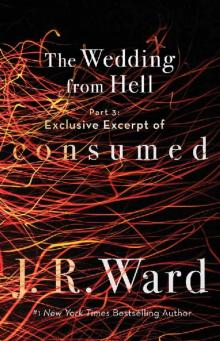 The Wedding from Hell, Part 3: Exclusive Excerpt of Consumed
The Wedding from Hell, Part 3: Exclusive Excerpt of Consumed Heart of Gold
Heart of Gold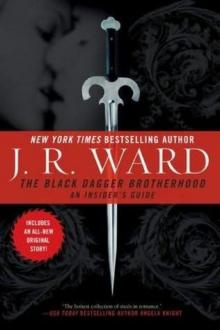 The Black Dagger Brotherhood_An Insider's Guide
The Black Dagger Brotherhood_An Insider's Guide![[Fallen Angels 01] - Covet Read online](http://i1.bookreadfree.com/i1/04/03/fallen_angels_01_-_covet_preview.jpg) [Fallen Angels 01] - Covet
[Fallen Angels 01] - Covet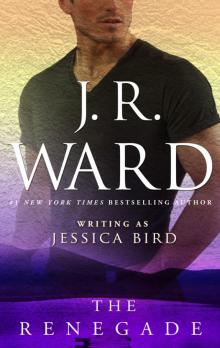 The Renegade
The Renegade Blood Fury: Black Dagger Legacy
Blood Fury: Black Dagger Legacy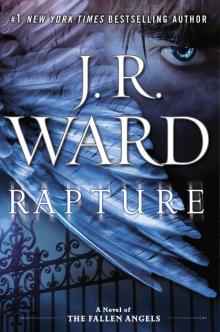 Rapture: A Novel of The Fallen Angels
Rapture: A Novel of The Fallen Angels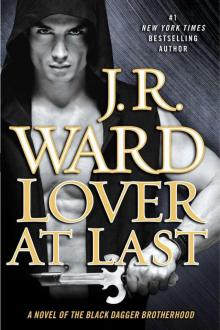 Lover At Last: A Novel of the Black Dagger Brotherhood
Lover At Last: A Novel of the Black Dagger Brotherhood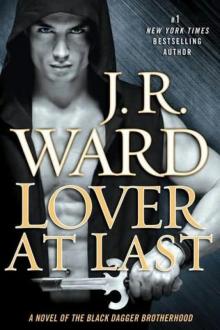 Lover At Last tbdb-11
Lover At Last tbdb-11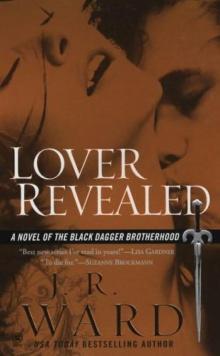 Lover Revealed tbdb-4
Lover Revealed tbdb-4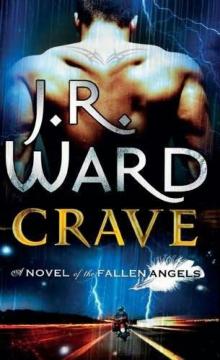 Crave fa-2
Crave fa-2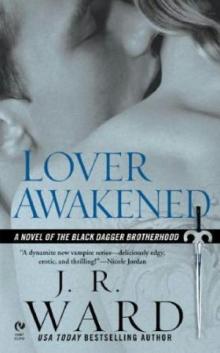 Lover Awakened tbdb-3
Lover Awakened tbdb-3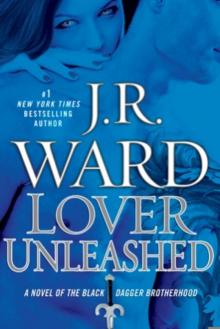 Lover Unleashed bdb-9
Lover Unleashed bdb-9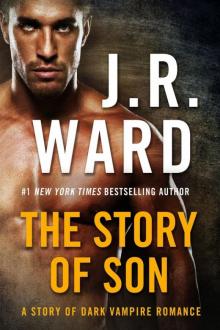 The Story of Son
The Story of Son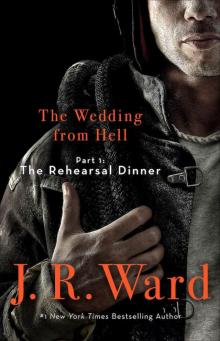 The Wedding from Hell_Part 1_The Rehearsal Dinner
The Wedding from Hell_Part 1_The Rehearsal Dinner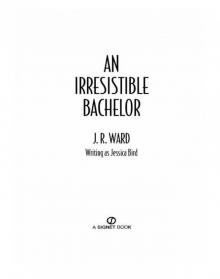 An Irresistible Bachelor
An Irresistible Bachelor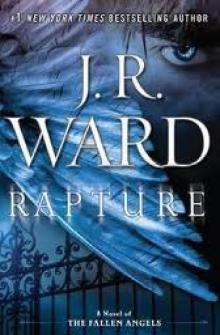 Rapture fa-4
Rapture fa-4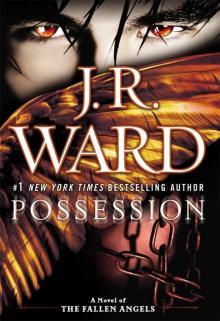 Possession fa-5
Possession fa-5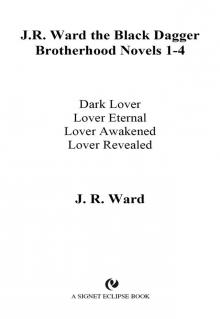 The Black Dagger Brotherhood Novels 1-4
The Black Dagger Brotherhood Novels 1-4 Lover Eternal tbdb-2
Lover Eternal tbdb-2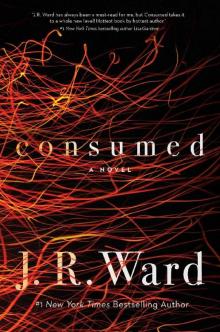 Consumed (Firefighters #1)
Consumed (Firefighters #1)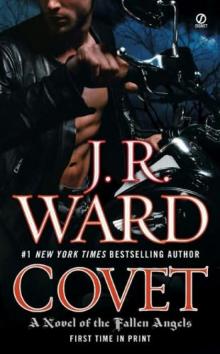 Covet fa-1
Covet fa-1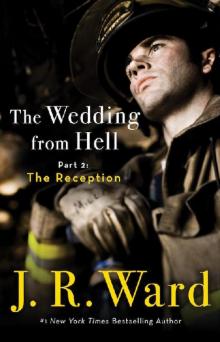 The Wedding From Hell: Part 2: The Reception
The Wedding From Hell: Part 2: The Reception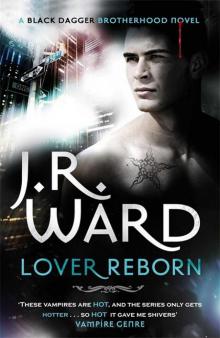 Lover Reborn: A Novel of the Black Dagger Brotherhood
Lover Reborn: A Novel of the Black Dagger Brotherhood